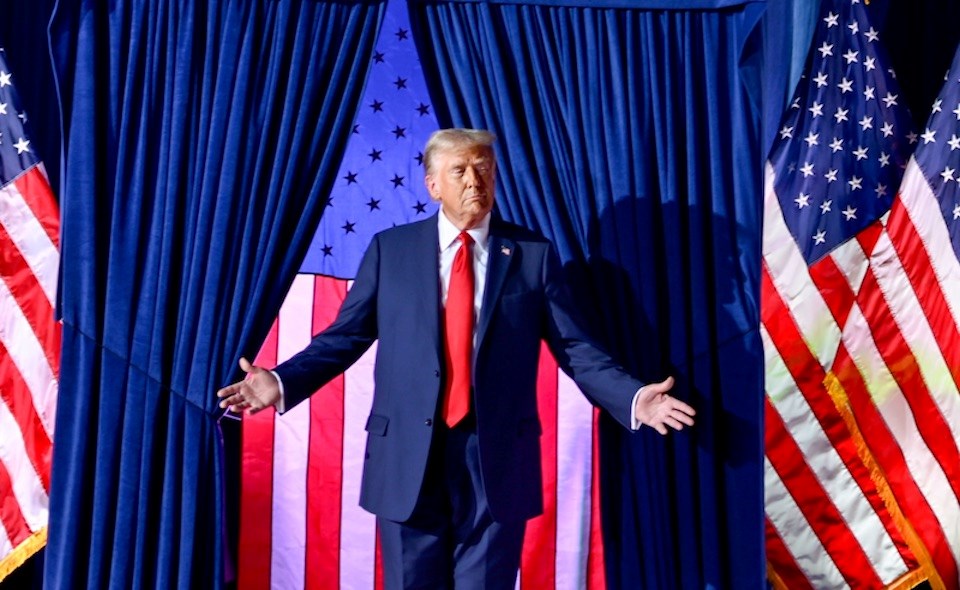Former President Donald Trump's historic win over Vice President Kamala Harris shocked many people worldwide, but the election may have far-reaching effects in Metro Vancouver.
The University of British Columbia Centre for Migration Studies Founder and Co-Director Antje Ellermann told V.I.A. Wednesday (Nov. 6) that U.S. election results impact local politics, particularly on key issues such as immigration, reproductive rights, and LGBTQIA2S+ rights.
Ellermann and her colleagues have closely followed the U.S. election and expect a "significant increase in asylum applications" in Canada, particularly from individuals who don't think their rights will be protected south of the border.
"Transgender rights are under attack in the U.S. and under Trump," she said. "This is something that is being politically attacked in Canada, too.
"There are already people in the United States who are afraid [because of these reasons]. I would anticipate a lot of pressure on the border with people who feel unsafe."
"We are going to see a hardening of attitudes to immigration across the country."
Ellermann notes that Canada sees fewer asylum seekers than the U.S. because it doesn't share a land border with Mexico. However, Canada has limited employers' number of Labour Market Impact Assessments to 10 per cent of its workforce. These are applications for foreign workers to fill low-skill jobs such as those in coffee shops, fast food, and some retail.
Still, migrants coming through Latin America and Mexico will find the U.S. border more tightly closed after Trump takes office and look for other destinations, she adds.
The Conservative Party of Canada aligns with Republican values. And as extremist groups are emboldened in the U.S., locals may see a shift in its platform, too.
The Conservatives haven't made immigration part of its campaign but the U.S. election result has made more space for Poilievre, explains Ellermann. "He has been restrained...but we are going to see a hardening of attitudes to immigration across the country."
Ellermann expects the provinces will see increased pressure from the federal level to receive asylum seekers. Since Metro Vancouver doesn't have available housing for these individuals, public support may decline in the wake of the election.
The political analyst feels reproductive rights are in less jeopardy in Canada, noting it isn't as much of a bipartisan issue. That said, she says the election has sped up public polarization between people with progressive leanings and those with more conservative ones.
Why did Trump win?
Ellermann says Trump's campaign was successful because he focused on two important issues. One is the economy, promising to defeat sky-high inflation levels and targeting young, male voters who are "less concerned about reproductive rights."
The second topic, immigration, followed unprecedented levels of immigration and asylum seekers in the U.S. during the Biden administration. She says Trump appealed to female voters by honing in on crime and safety, added the migration expert.
"The big picture is that it does seem like a new world order. It remains harder for Canada to embrace diversity and the country is indirectly taking so much pressure on the border and increased networking across the border between anti-immigrant groups," she said.
The People's Party of Canada (PPC) - the country's more extreme right group - received significant votes in the last federal election but didn't gain a seat. However, many ridings in the Lower Mainland voted Conservative, including Abbotsford, Pitt Meadows-Maple Ridge, South Surrey-White Rock, and Langley.
Following Trump's win, some of the right-leaning areas in the Lower Mainland could favour more extremist views and gain supporters.



